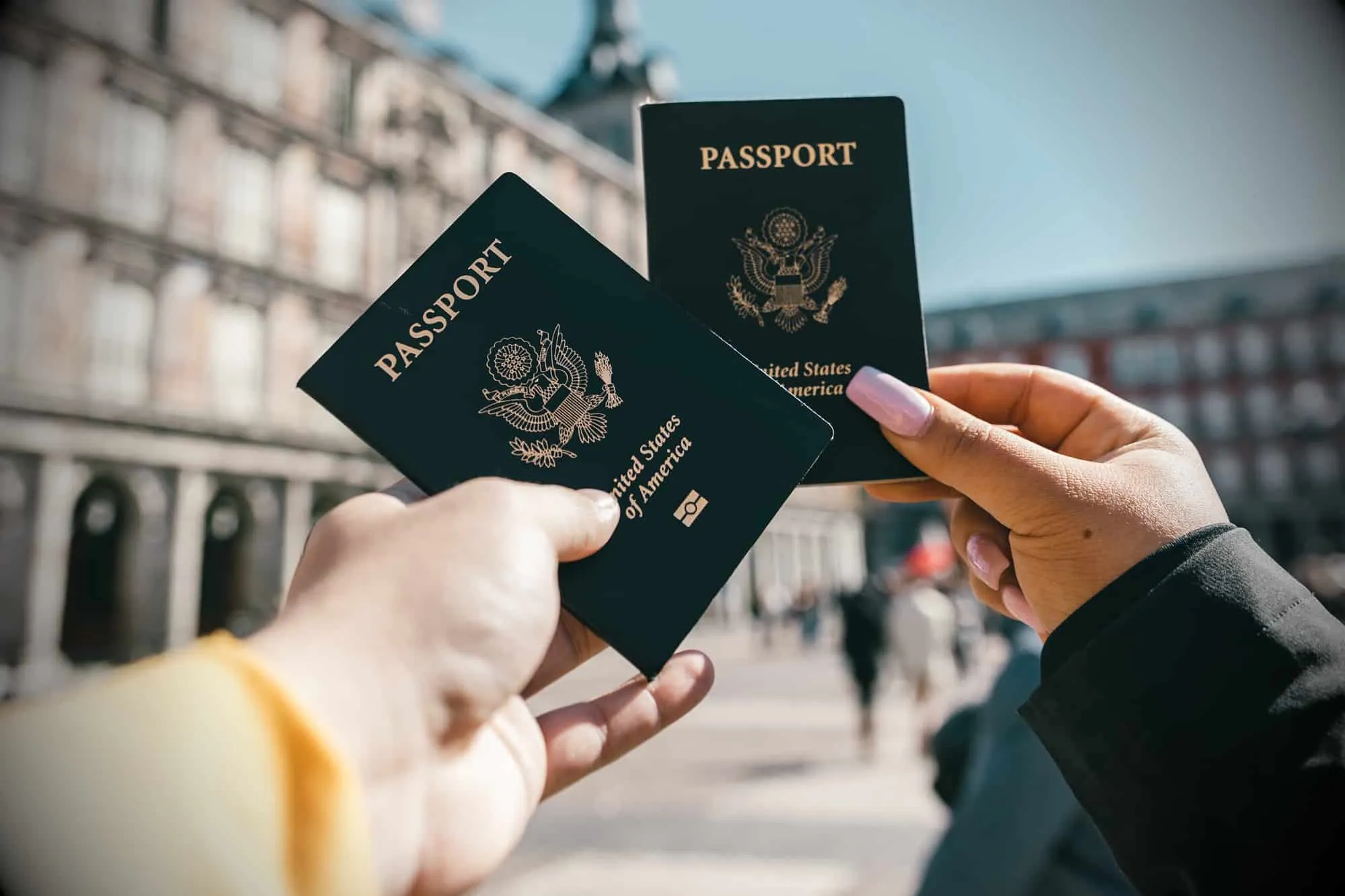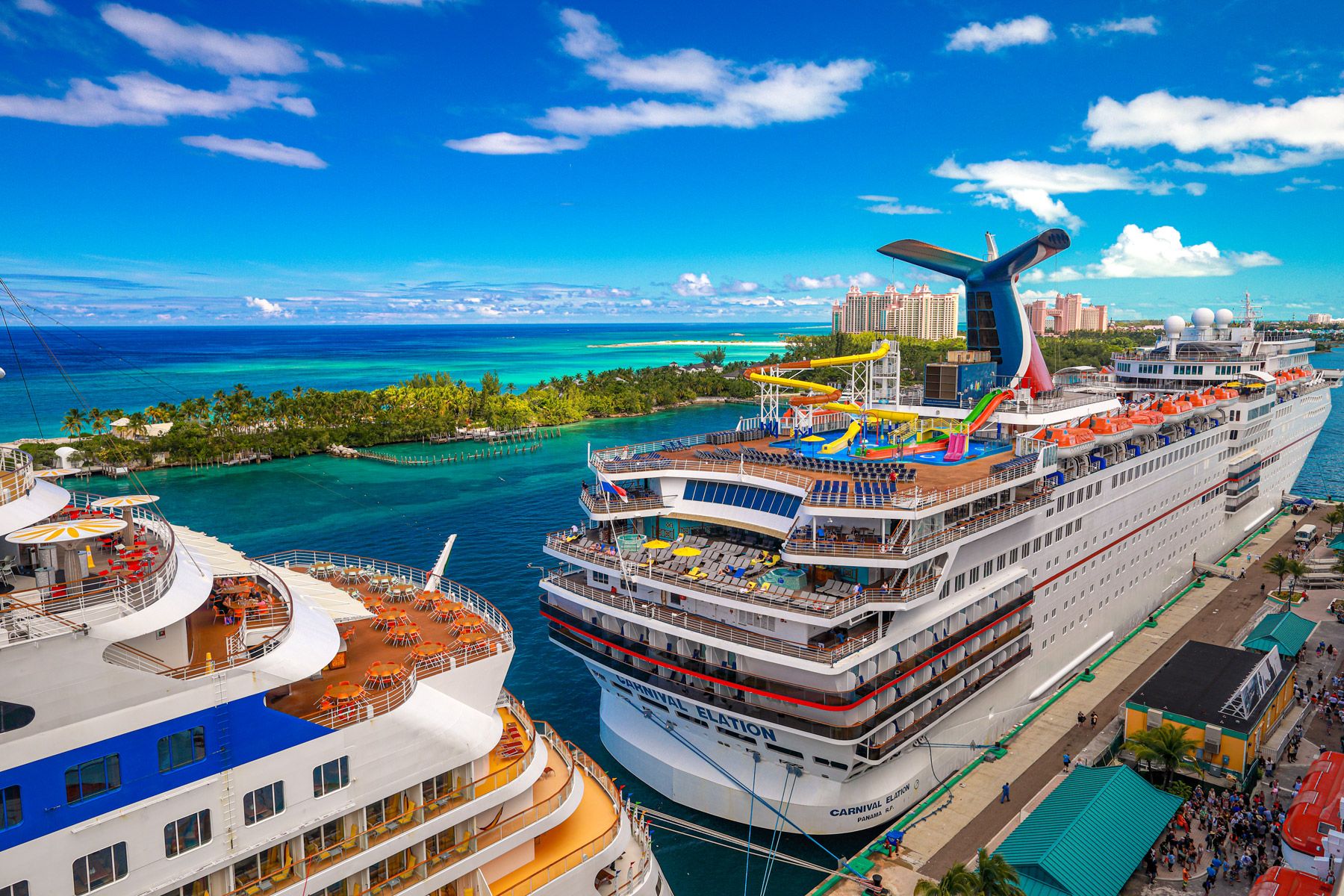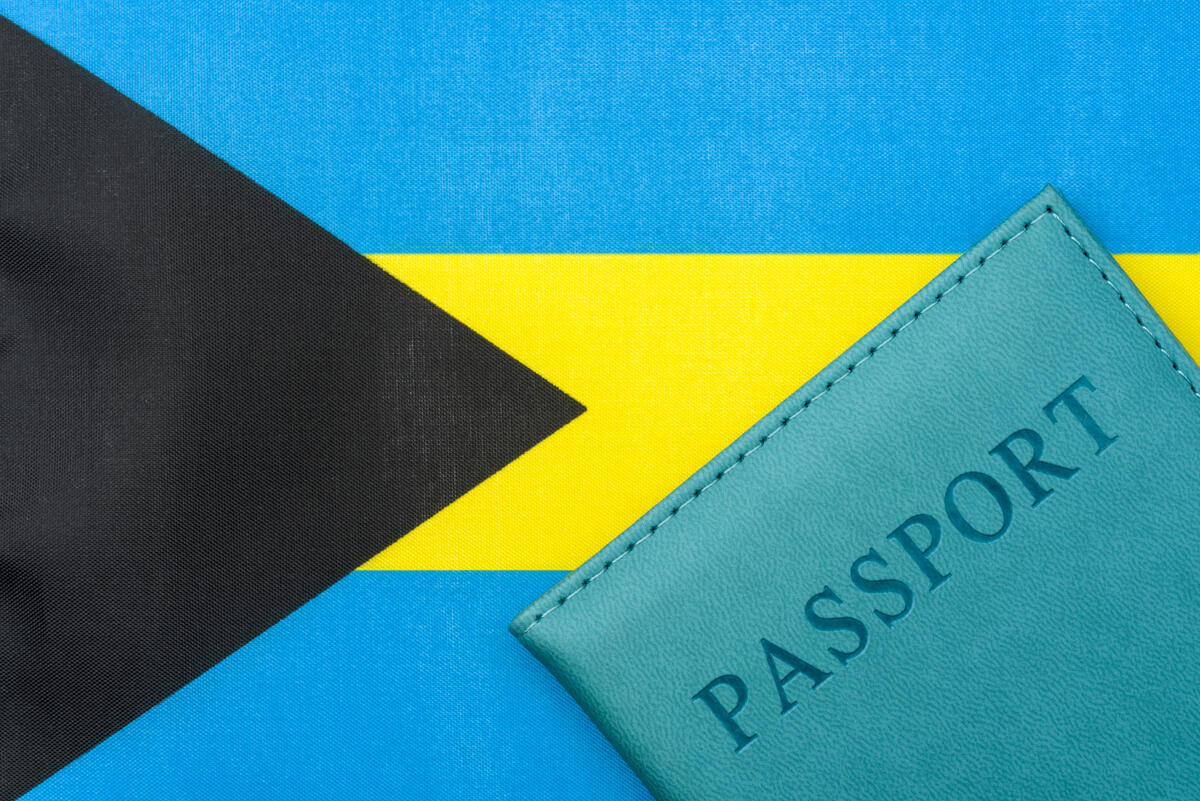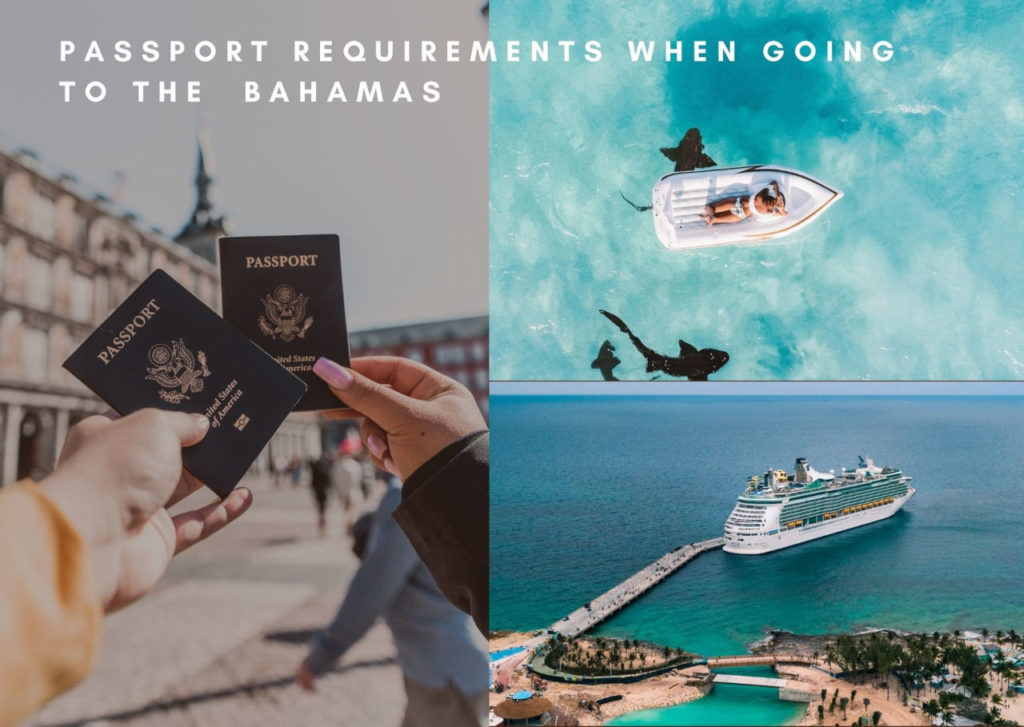Understanding the Entry Requirements for the Bahamas
Traveling to the Bahamas can be a thrilling experience, but it’s essential to understand the entry requirements to avoid any complications or delays. The Bahamas, a popular tourist destination, has specific rules and regulations for visitors, including requirements for travel documents, such as passports, visas, and other identification. Failure to meet these requirements can result in denied entry, fines, or even deportation.
One of the most common questions travelers ask is, “Do you need a passport to go to the Bahamas?” The answer is not a simple yes or no. While a passport is often required, there are exceptions and special cases. For instance, U.S. citizens traveling to the Bahamas by air must present a valid U.S. passport, while those arriving by sea may use a passport card or other accepted documents.
It’s crucial to understand the differences between various travel documents and when each is required. A passport book, for example, is a standard document that contains multiple pages for visa stamps and is required for international air travel. A passport card, on the other hand, is a less expensive, wallet-sized document that can only be used for land and sea travel to and from Canada, Mexico, the Caribbean, and Bermuda.
In addition to a passport, visitors may need to present other documents, such as a return ticket, proof of sufficient funds, and health insurance. It’s also important to ensure that your passport is valid for at least six months beyond your planned departure date from the Bahamas.
Understanding the entry requirements for the Bahamas is vital to ensure a smooth and enjoyable trip. By knowing what documents are required and when, travelers can avoid unnecessary stress and complications, and focus on enjoying the beautiful beaches, crystal-clear waters, and vibrant culture of the Bahamas.
Do You Need a Passport to Enter the Bahamas?
One of the most frequently asked questions when traveling to the Bahamas is, “Do you need a passport to go to the Bahamas?” The answer depends on several factors, including your mode of transportation, country of citizenship, and the purpose of your visit.
U.S. citizens traveling to the Bahamas by air must present a valid U.S. passport. However, if you’re arriving by sea, such as on a cruise ship or private boat, you may use a passport card, enhanced driver’s license, or other accepted documents. It’s essential to note that while a passport card is acceptable for land and sea travel, it’s not valid for international air travel.
There are some exceptions to the passport requirement. For example, U.S. citizens traveling to the Bahamas on a closed-loop cruise (a cruise that begins and ends in the same U.S. port) may use a birth certificate and government-issued ID instead of a passport. However, it’s crucial to check with your cruise line to confirm their specific requirements.
In addition to U.S. citizens, visitors from other countries may also need to present a passport and/or visa to enter the Bahamas. It’s essential to check with the Bahamian government’s website or consult with the embassy or consulate of your home country to determine the specific requirements for your nationality.
When traveling to the Bahamas, it’s also important to ensure that your passport is valid for at least six months beyond your planned departure date. If your passport is due to expire soon, you may need to renew it before your trip.
In summary, while a passport is often required to enter the Bahamas, there are exceptions and special cases. By understanding the specific requirements for your situation, you can ensure a smooth and enjoyable trip to this beautiful island nation.
Alternative Travel Documents for the Bahamas
While a passport is often the most common travel document required for entry into the Bahamas, there are alternative documents that may be accepted in certain situations. For example, U.S. citizens traveling to the Bahamas by land or sea may use a birth certificate and government-issued ID, such as a driver’s license, instead of a passport.
Another alternative travel document is the trusted traveler card, which is a pre-approved, low-risk traveler card that allows for expedited processing when entering the United States. However, it’s essential to note that the trusted traveler card is not a substitute for a passport and may not be accepted for entry into the Bahamas.
Additionally, some cruise lines may accept alternative travel documents, such as a birth certificate and government-issued ID, for closed-loop cruises (cruises that begin and end in the same U.S. port). However, it’s crucial to check with your cruise line to confirm their specific requirements.
When using alternative travel documents, it’s essential to ensure that they meet the specific requirements for entry into the Bahamas. For example, a birth certificate must be an original or certified copy, and a government-issued ID must be valid and not expired.
It’s also important to note that alternative travel documents may have limitations and restrictions. For example, a birth certificate and government-issued ID may not be accepted for international air travel, and a trusted traveler card may not be accepted for entry into the Bahamas if you’re traveling by air.
In summary, while alternative travel documents may be accepted for entry into the Bahamas, it’s essential to understand the specific requirements and limitations of each document. By doing so, you can ensure a smooth and enjoyable trip to this beautiful island nation.
How to Obtain a Passport for Travel to the Bahamas
Obtaining a passport for travel to the Bahamas can seem like a daunting task, but it’s a straightforward process that can be completed with ease. Here’s a step-by-step guide to help you obtain a passport for your trip to the Bahamas:
Step 1: Determine Which Type of Passport You Need
There are two types of passports: a passport book and a passport card. A passport book is required for international air travel, while a passport card is acceptable for land and sea travel to and from Canada, Mexico, the Caribbean, and Bermuda.
Step 2: Gather the Required Documents
To apply for a passport, you’ll need to provide proof of U.S. citizenship, proof of identity, and a photocopy of both sides of your ID. Acceptable documents include a birth certificate, naturalization certificate, or prior passport.
Step 3: Fill Out the Application
Download and complete form DS-11, which is the application for a U.S. passport. Fill it out online and print it, or print a blank form and fill it out by hand. Do not sign the form until instructed to do so by an acceptance agent.
Step 4: Get a Passport Photo
You’ll need one recent, color photograph that meets the Department of State’s requirements. The photo should be 2×2 inches in size, with a white background, and a neutral expression.
Step 5: Visit a Passport Acceptance Facility
There are over 9,000 passport acceptance facilities located throughout the U.S., including post offices, libraries, and county clerk’s offices. Make an appointment and bring all your documents, the application fee, and the execution fee.
Step 6: Pay the Application Fee
The application fee for a U.S. passport book is currently $110 for adults (16 and older) and $80 for children (15 and younger). The fee for a passport card is $30 for adults and $15 for children. There is also an execution fee, which varies by acceptance facility but is typically between $25 and $35.
Step 7: Receive Your Passport
Processing times can vary depending on the workload of the Department of State, but routine service typically takes 6-8 weeks. Expedited service is available for an additional fee, which takes 2-3 weeks.
By following these steps, you’ll be well on your way to obtaining a passport for your trip to the Bahamas. Remember to apply early, as processing times can be unpredictable, and you don’t want to risk delaying your trip.
Special Considerations for Cruise Travelers
Cruise travelers to the Bahamas have specific requirements that differ from those traveling by air or land. While a passport is still the preferred travel document, there are some exceptions and additional requirements to be aware of.
For closed-loop cruises, which begin and end in the same U.S. port, a passport is not always required. However, you will still need to provide proof of citizenship, such as a birth certificate and government-issued ID. It’s essential to check with your cruise line to confirm their specific requirements, as some may require a passport even for closed-loop cruises.
In addition to proof of citizenship, cruise travelers may also need to provide a visa, depending on their nationality. Check with the Bahamian government’s website or consult with the embassy or consulate of your home country to determine if a visa is required.
Another consideration for cruise travelers is the Western Hemisphere Travel Initiative (WHTI), which requires travelers to and from the Caribbean, including the Bahamas, to have a valid passport, passport card, or other accepted documents.
It’s also important to note that some cruise lines may have additional requirements or restrictions for travel to the Bahamas. For example, some cruise lines may require a passport for travel to certain islands or for specific shore excursions.
To ensure a smooth and enjoyable cruise to the Bahamas, it’s essential to research and understand the specific requirements for your cruise line and itinerary. Don’t hesitate to reach out to your cruise line or a travel agent for guidance and assistance.
By being aware of these special considerations, cruise travelers can avoid any potential issues or delays and focus on enjoying their time in the Bahamas.
Traveling to the Bahamas with Minors
Traveling to the Bahamas with minors requires some additional planning and documentation. The Bahamian government has specific requirements for minors traveling with or without their parents, and it’s essential to understand these requirements to avoid any issues or delays.
When traveling with minors, it’s crucial to ensure that they have the necessary documentation, including a valid passport, birth certificate, and proof of citizenship. If the minor is traveling with one parent, the other parent must provide a notarized letter of consent, which grants permission for the minor to travel with the accompanying parent.
If the minor is traveling without either parent, they must have a notarized letter of consent from both parents, as well as a copy of the parents’ identification. In some cases, additional documentation, such as a court order or guardianship papers, may be required.
It’s also important to note that minors under the age of 16 may not need a passport for closed-loop cruises, but they will still need to provide proof of citizenship, such as a birth certificate and government-issued ID.
When traveling with minors, it’s also essential to consider their safety and well-being. The Bahamas has a number of child-friendly activities and attractions, but it’s still important to take necessary precautions to ensure their safety, such as keeping a close eye on them at all times and being aware of potential hazards.
By understanding the requirements for traveling to the Bahamas with minors, parents and guardians can ensure a smooth and enjoyable trip for the whole family. It’s always better to err on the side of caution and be over-prepared when it comes to traveling with minors.
In addition to the documentation requirements, it’s also a good idea to make photocopies of all important documents, including passports, birth certificates, and identification, and leave a copy with a trusted friend or family member in case of an emergency.
By taking the necessary precautions and understanding the requirements for traveling to the Bahamas with minors, families can have a wonderful and memorable vacation in this beautiful island nation.
Common Mistakes to Avoid When Traveling to the Bahamas
When traveling to the Bahamas, it’s essential to avoid common mistakes that can lead to delays, fines, or even deportation. One of the most critical mistakes is failing to meet the entry requirements, such as not having a valid passport or insufficient proof of citizenship.
Another common mistake is not understanding the difference between a passport book and passport card. While a passport card is acceptable for land and sea travel, it’s not valid for international air travel. Make sure to obtain the correct type of passport for your mode of transportation.
Expired or invalid travel documents are also a common mistake. Ensure that your passport is valid for at least six months beyond your planned departure date from the Bahamas. If your passport is due to expire soon, renew it before your trip to avoid any issues.
Insufficient proof of citizenship is another mistake to avoid. Make sure to bring a valid birth certificate, naturalization certificate, or prior passport to prove your citizenship. If you’re traveling with minors, ensure that you have the necessary documentation, such as a notarized letter of consent from both parents.
Failure to meet the entry requirements for the Bahamas can result in serious consequences, including fines, deportation, or even imprisonment. To avoid these consequences, it’s essential to understand the entry requirements and take the necessary steps to ensure compliance.
Additionally, be aware of potential scams or hazards, such as phishing scams or credit card skimming. Keep your valuables secure, and be cautious when using ATMs or credit cards.
By avoiding these common mistakes, you can ensure a smooth and enjoyable trip to the Bahamas. Remember to stay informed, plan ahead, and take the necessary precautions to ensure a successful and stress-free vacation.
It’s also important to note that the Bahamian government has strict laws and regulations regarding immigration and customs. Make sure to comply with all regulations and laws to avoid any issues or penalties.
By being aware of these common mistakes and taking the necessary steps to avoid them, you can have a wonderful and memorable vacation in the Bahamas.
Staying Safe and Informed While Traveling in the Bahamas
When traveling to the Bahamas, it’s essential to stay safe and informed to ensure a enjoyable and stress-free vacation. Here are some tips and resources to help you stay safe and informed while traveling in the Bahamas:
Register with the local authorities: Register with the Bahamian government’s travel registration service to receive important safety and security updates about the Bahamas.
Stay up-to-date with local conditions: Check the official government website for the Bahamas for the latest information on local conditions, including weather, road closures, and any safety concerns.
Be aware of potential scams or hazards: Be cautious of scams or hazards, such as phishing scams or credit card skimming. Keep your valuables secure, and be aware of your surroundings at all times.
Respect local customs and laws: Respect local customs and laws, including dress codes, noise restrictions, and any other regulations.
Stay informed about health and safety: Stay informed about any health and safety concerns in the Bahamas, including outbreaks of illnesses or natural disasters.
Use reputable transportation services: Use reputable transportation services, such as licensed taxis or shuttle services, to get around the Bahamas.
Avoid traveling alone at night: Avoid traveling alone at night, especially in areas that are not well-lit or populated.
Keep your hotel room door locked: Keep your hotel room door locked and secure, and use the hotel’s safe to store your valuables.
Be mindful of your belongings: Be mindful of your belongings, especially in crowded areas or tourist hotspots.
By following these tips and staying informed, you can ensure a safe and enjoyable vacation in the Bahamas.
Additionally, consider purchasing travel insurance to protect yourself against unexpected events, such as trip cancellations or medical emergencies.
Remember to always prioritize your safety and well-being while traveling, and don’t hesitate to seek help if you need it.







